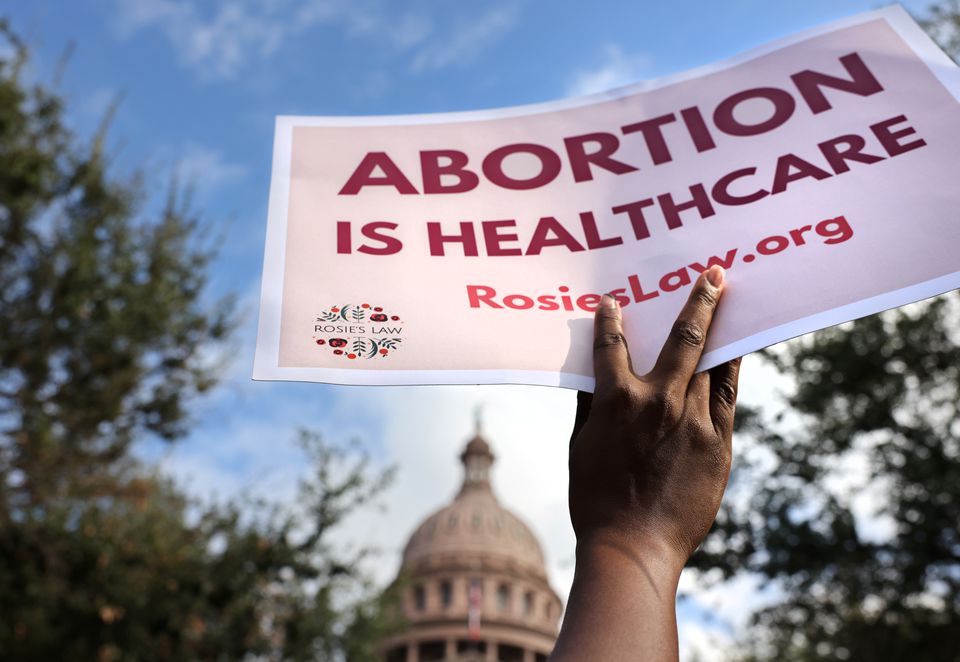The United States of America, believed to be one of the most liberal countries in the world, is gearing up for one of the most controversial decisions- an ‘abortion’ of rights, which if overturned could lead millions of women to lose their legal right to abort their unborn child. A precedent set way back in 1973 could soon be overturned if the U.S. Supreme Court decides to reverse nationwide abortion rights of women that was legalized by the Roe vs Wade ruling. If conversed, it would allow individual U.S. states to ban abortion. The ruling expected to be issued in late June or early July has already divided the country, which is gearing for an important mid-term election cycle. Roe v Wade in 1973 gave women in the U.S. an absolute right to an abortion in the first three months of pregnancy, and limited rights in the second trimester.
An abortion, also referred to as “termination of pregnancy”, is a procedure to end pregnancy. The pregnancy is ended either through medicines or surgical procedures. Interestingly, till date it remains one of the most controversial and bitterly-contested ethical and political battlegrounds.
In 2022, it is still illegal for women to terminate their pregnancies in any circumstance in 24 countries, while 37 others have restricting access in any case except when the mother’s life is in danger. For instance, Latin America has some of the world’s most extreme anti-abortion laws. Abortion is illegal under any circumstances in El Salvador, Nicaragua and Honduras. In fact, in El Salvador abortion is punishable up to 35 years of imprisonment. In Brazil, access to abortion – only legal in the country on the grounds of rape, severe fetal defects and women’s health – has been curtailed. In 2020, the country introduced new legislation that requires medical staff to inform the police of rape survivors seeking the procedure.
However, there are countries like India, which has a flexible law on abortion. In India, abortion is allowed legally under the Medical Termination of Pregnancy Act (MTP), 1971, which permitted medical abortion up to 9 weeks of pregnancy and surgical abortions up to 20 weeks of pregnancy. However, this bill was amended under The Medical Termination of Pregnancy (Amendment) Bill, 2020, which increased the time within which a woman can undergo an abortion and also regulated the conditions under which the surgical procedure could be carried out. While the MTP Act, 1971 required the opinion of one doctor if the abortion was done within 12 weeks of pregnancy and two doctors for abortion within 12-20 weeks, the amended bill allows advice of one doctor if abortion is done within 20 weeks of pregnancy and advice of two doctors in certain cases between 20-24 weeks of pregnancy. The amendment in the bill also recognizes the right of unmarried women to seek a legal abortion.
Most European countries have legalized abortion, including predominantly Catholic ones. Ireland did so in 2018, followed by tiny San Marino in a voter referendum recently. It remains illegal in Andorra, Malta and Vatican City, while Poland has tightened its abortion laws. The leaked reports in the U.S. has yet again opened a Pandora’s box on the issue of rights of women vs unborn child worldwide.
It may be noted that pro-life activists have actively campaigned for stricter laws on abortion, claiming that no one has the right to kill, even if it’s in the mother’s womb. It’s ethically unethical to kill, they opine. Most societies, till date feel, even if the fetus is not a human being, it should be treated as a special entity, and shouldn’t be casually discarded. The ‘Catechism of the Catholic church states that the embryo must be treated as a person from conception.
On the other hand, liberals are of the view that abortion comes under ‘right to life’ and every woman has a right over her body. It’s her choice to give birth and she shouldn’t be forced to go for pregnancy without her will. The activists have often blamed the patriarchal mindset for opposing abortion. By forcing people to have children when they don’t want to, the ideologues strip women of political and earning power, in some cases making them dependent upon men. Moreover, in countries like India, where till date it’s a taboo for an unmarried girl to give birth to child, abortion comes as a relief for girls who have been forced, duped for sex and left abandoned when pregnant.
Therefore, as the debate rages, it’s very important to understand the gravity of the situation. Let’s not forget that the world has undergone sea change. The overexposure to technology has given rise to misinformation of facts, exposing people to indecent activities, especially the young adults, giving rise to teenage pregnancy, rapes, etc., which has resulted in the growth of illegal abortions.
According to the World Health Organization (WHO), unsafe abortions kill more than 47,000 people every year, with five million hospitalized for complications, such as bleeding or infection. WHO data also shows that banning abortions has little or no effect on abortion rates throughout the world.
Should the world be more flexible on abortion? While, women should be entitled to safeguard their rights and given the choice to decide, especially on health grounds, decisions should be taken on practical grounds to terminate a pregnancy, if the mother feels, she can’t take the responsibility of the child on health, moral, physical or financial ground. State should have limited role in punishing or stripping a woman of her fundamental right in the name of ethics, for let’s not forget, it is unethical to force a woman to give birth to a child when she is not physically, mentally or emotionally prepared to bear the responsibility to bring a life to the earth.

